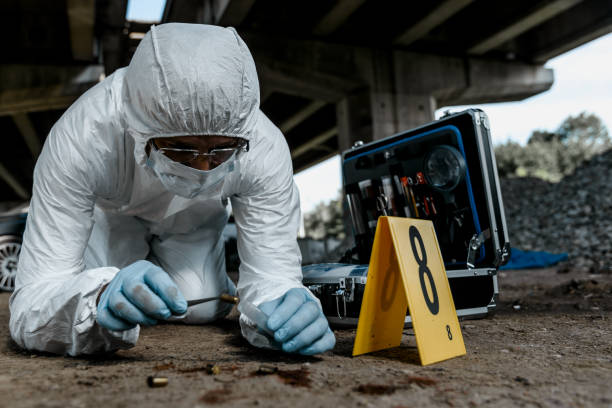Top 5 Jobs In Forensic Science

Choosing a career in forensic science can be difficult because not everyone is familiar with the different options. For those looking to break into the world of crime scene investigations, this article outlines some of the most popular jobs and their requirements.
Toxicologist
Toxicologists are forensic scientists who study the effects of drugs and chemicals on the human body. They may work in crime labs, medical examiner’s offices, or research institutions.
This scientist employ a variety of scientific techniques to examine samples of blood, urine, tissue, and other substances taken from the human body. They use this information to identify the presence of toxins and to determine how these toxins affect the body.
Toxicologists play a vital role in criminal investigations. They can help to identify the cause of death in cases where foul play is suspected.
can also provide information that can be used to build a case against a suspect. Toxicologists are required to have a strong background in chemistry and biology. They must be able to understand and interpret complex scientific data.
Private investigator
Private investigators are one of the top jobs in forensic science. They are responsible for investigating crimes and gathering evidence. They often work with law enforcement agencies to help solve crimes.
This type of forensics science majors must have excellent observational skills and be able to pay attention to detail. They must also be able to communicate well, both verbally and in writing. They must have good research skills and be able to use various computer applications.
Private investigators typically need at least a high school diploma, although some jobs may require post-secondary education. Many private investigators start their careers as police officers or detectives.
Forensic pathologist
A forensic pathologist is a medical doctor who specializes in investigating deaths and determining the cause of death. Forensic pathologists must have a strong understanding of medicine and be able to effectively communicate their findings to law enforcement and legal professionals.
Forensic pathologists typically work for the government or for private firms that provide consulting services to law enforcement agencies. They may also work for medical examiner’s offices or coroner’s offices.
Forensic pathologists must have a medical degree and complete a residency in pathology. They may also need to complete a fellowship in forensic pathology. Forensic pathologists must be licensed to practice medicine in the United States.
The job outlook for forensic pathologists is good. The median annual salary for forensic pathologists is $187,200.
Analytical pathologists
Analytical pathologists play a vital role in forensic science. They use their knowledge of pathology to examine evidence and identify clues that can help solve crimes.
Analytical pathologists must be able to work quickly and efficiently under pressure. They must also have excellent attention to detail and be able to communicate clearly with other members of the forensic team.
Forensic anthropologists
Forensic anthropologists use their knowledge of human anatomy to help solve crimes. They may be called upon to examine human remains in order to determine the cause of death or to identify the victim. They must have a detailed knowledge of human anatomy and be able to work with other members of the forensic team, such as police officers and detectives.
Forensic odontologists
Forensic odontologists use their knowledge of dentistry to help solve crimes. They may be called upon to examine dental records in order to identify a victim or to determine the cause of death. They must have excellent attention to detail and be able to communicate clearly with other members of the forensic team.
You might also find these articles informative:
- How To Tell Your Boss You Want To Quit: 6 Ways to Do It
- How To Create Effective Interview Questions For Business
- How to prepare for a Job interview
- The 5-Step Process For Writing A Thank You Email After An…
- Top Behavioral Interview Questions: What They Are, And How…
- The Top 10 Careers In Technology
Frequently Asked Questions
What is the highest paid forensic science job?
The Highest paid forensic science job is Medical examiner
Where are forensics scientist paid the most?
California
Illionios
Massachusetts
Oregon
Alaska
Do Forensics scientists go to crime scenes?
No , forensics scientist do not visit crime scenes, they work in the lab environment.
How many hours do Forensic scientist work each week?
They work 40 hours each week.
Conclusion
Forensic science is a field that is constantly evolving, which means there are always new and interesting job opportunities available. If you’re thinking about pursuing a career in forensic science, be sure to check out our list of the top 5 jobs in the field.
From crime scene investigators to DNA analysts, there’s sure to be a job that interests you. And who knows? You could end up working on some high-profile cases and helping to bring criminals to justice. For more career tips, kindly visit Dailygam.com.






